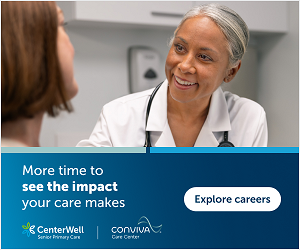I suffered through burnout twice in my career. Each episode was similar in that feelings of fatigue, exhaustion, and emotional overwhelm were predominant. Each time I felt like a failure as a mother and a physician. However, each episode of burnout differed by involving different triggers and calling into focus different aspects of my work-life imbalance.
For each episode of burnout, I was able to employ some particular methods to recover. When I am interviewed on various podcasts, I am often asked to explain just how I recovered successfully from burnout. Right now, many working mothers who consider themselves to be burned out are asking themselves: What are some effective coping strategies for working mothers who are experiencing burnout?
My first episode of burnout occurred in my early forties when I had three little kids and a busy job in the NICU, working an excessive number of hours on-call. We were short-staffed, and the unit had to be covered, so we rolled up our sleeves and did it. My division chief was unsympathetic to my plight. He was an old-fashioned older man who thought doctors should make rounds on their patients every day for a month. I was miserable! At this time, my husband’s job was smoother than mine, and he enjoyed more personal time away from the hospital than I did. I was able to confide in another colleague and division chief. She was sympathetic since she was also an overachieving physician with two small children herself. In talking things through with her, I was able to see other avenues that would allow me to get the time and space I needed to recover.
My second episode of burnout occurred much later in my career after I had practiced closely with my partners for over twenty years. We all worked together well, and we struggled together with ethical dilemmas in the NICU. We had an effective and thoughtful practice, but during this challenging time, I fared worse than the other neonatologists because I also struggled with a young adult daughter who was experiencing declining mental health. She was away at college and was self-medicating with marijuana. I felt helpless to support her from so far away. Yes, I was working too many hours in the NICU then, too. I was often sleep-deprived, and I had come to rely on drinking wine in the evenings for my stress control. When I discussed my situation with my current medical director, an old friend and confidant, he understood what I was going through and agreed to help me.
The first rule for recovery from burnout (both times) was:
1. Communicate with your employer or some senior person who can help. If possible, have open and honest conversations with your employer, manager, or supervisor about your workload, your personal family situation, and any additional support you may need. Explore flexible work options, such as flextime, remote work, or reduced hours, if they are available and suitable for your situation. If your manager is female, she is more likely to be understanding about the issues that led to your burnout. She may have experienced some of the things you are struggling with. Even if your manager is male, try to explain to him your personal life constraints.
The next rule for my recovery was:
2. Prioritize self-care. Take care of your physical, emotional, and mental well-being. Making time for activities you enjoy, such as exercising, reading, taking walks, or practicing mindfulness and relaxation techniques, is no easy feat. This takes some time, commitment, and organization. Planning to exercise and walk with a friend helps by holding you accountable. If you are working an excessive number of hours, that needs to change. You must attend to your emotional and mental well-being by confiding in a good friend, a trusted colleague, or a mentor or by seeing a professional therapist on a regular basis. I did both, each time I suffered through burnout. A professional therapist helped me to identify my specific emotional challenges and the things that I could change.
The third rule for my recovery was:
3. Learn to set boundaries and say no when you feel overwhelmed or stretched too thin. Establishing clear boundaries between work and personal life to ensure you have time for yourself and your family is no easy feat, but it is mandatory. As an overachieving professional who never said no to anyone, I had to come to grips with my tendency to put everyone before me. I had to learn that saying yes to someone else, saying yes to more work or another project, was really saying no to me. I had to cut my hours to make it to the gym, to take a walk in the neighborhood, to read books, or to listen to books on Audible. Setting boundaries is hard, but it can be done with forethought.
The fourth rule in my recovery was:
4. Create some space in which to think, assess, and allow yourself to work less diligently. In my first burnout episode, I ultimately left clinical medicine for a time and went to work as the medical director of a small HMO affiliated with my medical school. My friend, the division chief who turned into our department chair, recommended me for that plum job. The hours were heavenly—nine to five and no weekends. The job included nice trips to resort spots in which to learn executive physician skills.
During my second episode of burnout, I was allowed to cut back my hours to thirty-five per week and change my practice location. I left the busy NICU and went to work in a quiet L&D unit caring for mostly normal newborns. My manager allowed me the time and a place to decompress! There I had lots of days off in which to work on myself by reading, sleeping, and thinking. My boss valued me enough to allow me to downshift in a way that kept me sane.
The fifth rule in my recovery arsenal was:
5. Create a support network and surround yourself with supportive people who can offer understanding, advice, and assistance. Join support groups or connect with other working moms who are facing similar challenges. Sharing experiences and learning from others is incredibly helpful. I relied on good friends and a therapist to bounce ideas off and involved my husband to help me solve childcare problems. In the later years, I called on my oldest friends to eat lunch, listen, and laugh with me. During that time, near the end of my career, my friends and I told stories that helped me heal—difficult patients we shared, successful outcomes, and memorable parents. And my friends implored me not to blame myself for my daughter’s troubles.
There are undoubtedly more “rules” that may help you with your recovery from burnout, but these five helped me the most. You can try these, too.
Susan Landers is a retired neonatologist with 34 years of experience and has practiced both academic and private medicine. She can be reached on her website, Instagram @drsusanlanders, Facebook, and Substack.
She is an expert in burnout, breastfeeding medicine, and human donor milk banking. Her memoir, So Many Babies, is a realistic look into life inside the NICU and recounts many of her travails as a professional working mother. Her new eBook is Defeating Burnout: A Guide for Working Mothers. She publishes a popular newsletter called MomsMatter on Substack and a blog for parents on her website.





















![Why are medical students turning away from primary care? [PODCAST]](https://kevinmd.com/wp-content/uploads/Design-3-190x100.jpg)





![From Founding Fathers to modern battles: physician activism in a politicized era [PODCAST]](https://kevinmd.com/wp-content/uploads/The-Podcast-by-KevinMD-WideScreen-3000-px-4-190x100.jpg)

